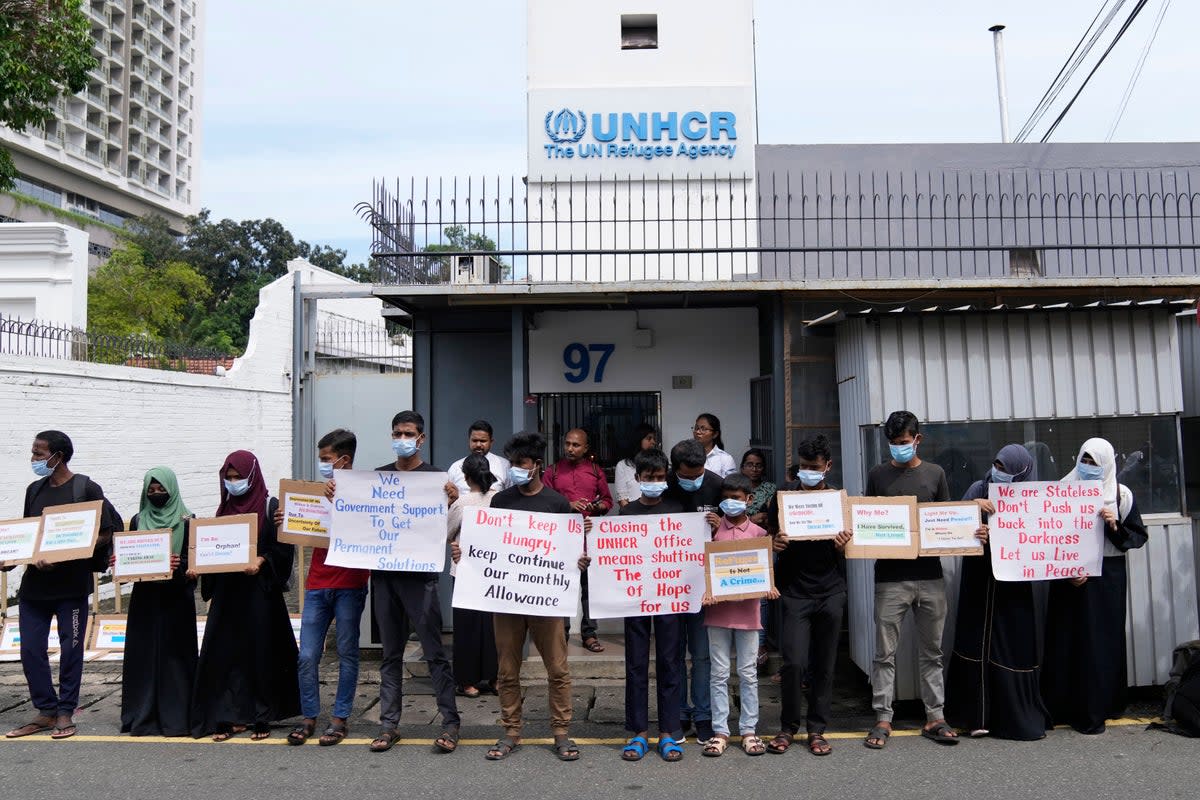More than 100 Rohingya refugees escape from Malaysian detention centre

More than 100 Myanmar migrants fled from a Malaysian detention centre after protests, with one killed in a road accident.
Officials said that more than 100 Rohingya refugees from Myanmar escaped from the Bidor facility in the northern state of Perak on Thursday night.
The Malaysian immigration department said in a statement that some 115 of the men were Rohingya refugees and the remaining 16 were of other Myanmar ethnicities.
Director-general of the immigration department Ruslin Jusoh said in a statement that 131 detainees escaped from a centre in Perak state late Thursday.
District police chief Mohamad Naim Asnawi was quoted by the national Bernama news agency as saying that the immigrants escaped from the men’s block after a riot broke out at the detention centre.
This is the second time Rohingya refugees have fled a temporary detention centre in Malaysia.
In 2022, 528 Rohingya refugees protested and fled from the detention facility in northern Penang state. Six lost their lives while crossing a highway, and the majority of the escapees were recaptured.
Malaysia, a country that does not recognise refugee status, has historically been a popular refuge for ethnic Rohingya escaping oppression in Myanmar or from refugee camps in Bangladesh.
However, in the past few years, Malaysia has started to reject boats filled with Rohingya refugees and has detained thousands in overcrowded detention facilities, intensifying its efforts to clamp down on undocumented migrants.
Meanwhile, search operations for over 100 escapees were ongoing on Friday.
Nearly one million Muslim Rohingyas fled Buddhist-majority Myanmar amid waves of violence starting in August 2017 when armed attacks, massive-scale violence, and serious human rights violations forced the community to flee their homes in Myanmar’s Rakhine state.
The United Nations describes the Rohingya as “the most persecuted minority in the world”.
The Rohingya, a Muslim ethnic minority, have resided for centuries in what is now predominantly Buddhist Myanmar – previously referred to as Burma. Although they have been inhabitants of Myanmar for numerous generations, the Rohingya are not acknowledged as an official ethnic group and have been deprived of citizenship since 1982, rendering them the largest stateless community globally, according to UNHCR.
Additional reporting with agencies


